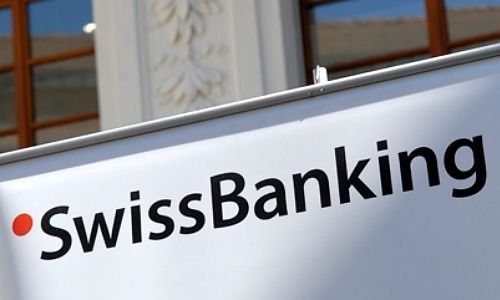Swiss monetary policy remains a contentious issue: The main banking lobby group demands that the central bank should find a way out of its crisis mode, because the negative impact by far exceeds the potential positive effects.
Peace didn’t last long. In a major study on negative interest rates, the Swiss Bankers Association (SBA) urges Thomas Jordan and his fellow directors of the Swiss National Bank (SNB) to consider lifting its negative rate policy because it was no longer adapted to the economic conditions of Switzerland.
Keeping the Pressure Up
A little more than a month ago, the SNB responded to demands from the banking industry and reduced the amount they are forced to pay for major cash deposits at the central bank – the SNB currently takes roughly 2 billion Swiss francs ($2.02 billion) in interest from banks per year. With the reduction, the policy makers released some of the pressure.
But the study published on Thursday concludes that the SNB nonetheless should pave the way for an exit from the current negative rate policy: «Negative interest rates no longer fulfill their economic purpose.»
Strength of Swiss Franc
One of the arguments mentioned by the study authors that is also key to the debate in Switzerland as a whole focuses on the value of the Swiss francs. «On a trade-weighted basis, the Swiss franc exchange rate is within the range of its long-term trend and thus close to equilibrium,» the economists led by Martin Hess said.
The SNB by contrast is using the value of the franc as its key argument to keep negative rates in place. In its last monetary-policy statement in September, the SNB said that the Swiss franc was «highly valued». It argued that negative interest was important to counteract the attractiveness of Swiss franc investments.
Negative Effects
The Bankers Association emphasized that negative rates no longer had the intended effect. Inflation was under control and the economy had adapted to the conditions. «Since their introduction almost five years ago, the impact of negative interest rates on exchange rates and economic growth has diminished substantially.»
Banks argue that the monetary policy pursued by the SNB had a series of negative effects. The price of real estate has surged as a consequence of the extra-cheap mortgages available to prospective homeowners. Banks, pension funds and insurers are fighting to sell mortgages at knock-down prices because they still generate a modest, but long-term return.
Cheap Mortgages
The policy of the central bank also impaired the chances of pension funds to generate enough interest. The disadvantages are becoming increasingly pronounced, the SBA said.
Instead of getting stabile returns from fixed income investments, pension funds are pushing into the real estate sector and are taking higher risks with investments on the equity market. Banks evidently struggle with the same phenomenon.
Emergence Measure a New Normal
Negative interest should remain an emergency measure, say the study authors. The worries of government (surge in property prices), banks, pension funds and savers should be tolerated only if the economic risks mean that negative interest rates are indispensable and only if they actually have the desired effect, they argue.
Considering the economic situation, the exchange rate and the inflation outlook, the bankers lobby believes that negative interest no longer is warranted and therefore it is necessary to pave the way for an exit from crisis mode.



































